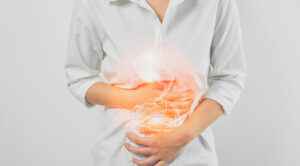Although it is frequently overlooked in comparison to organs like the stomach or intestines, the role of pancreas in digestion is very important. One of the most important organs in charge of breaking down food is the pancreas, which is subtly located beneath the stomach.
It produces vital fluids and enzymes that aid in the digestion of proteins, lipids, and carbs, acting as a chemical factory despite its diminutive size. Without its proper function, the body cannot effectively absorb nutrients, no matter how healthy your diet is. Let’s examine why a healthy digestive system depends on the pancreas in more detail.
What Is the Pancreas and Where Is It Located?
The pancreas is a soft, lengthy gland that is situated near the duodenum, the first segment of the small intestine, and behind the stomach. It carries out two main tasks:
- Digestive function (exocrine) – releases the small intestine's enzymes.
- Hormonal function (endocrine) – generates glucagon and insulin to regulate blood sugar.
This blog focuses on the role of pancreas in digestion, an exocrine function that aids in your body’s effective breakdown of food.
The Key Role of Pancreas in Digestion
The pancreas performs two primary functions that aid with digestion:
- Making digestive enzymes
- Bicarbonate is released to counteract gastric acid.
Let’s investigate these in more detail.
1. Producing Digestive Enzymes
Each day, the pancreas generates approximately one to two liters of digestive juice. Strong enzymes found in this juice break down food into tiny, absorbable molecules.
a) Amylase – Breakdown of Carbohydrates
Rice, bread, and pasta are examples of complex carbohydrates that amylase breaks down into simple sugars that your body may readily absorb for energy.
b) Proteases – Breakdown of Proteins
Proteins are broken down into amino acids by enzymes such as chymotrypsin and trypsin. These are necessary for immunity, general growth, and muscle regeneration.
c) Lipase – Breakdown of Fats
In order for fats to be absorbed through the gut lining, lipase converts them into fatty acids and glycerol.
This enzyme functions in tandem with the bile that the liver produces.
Even if you’re eating enough, your food would stay partially digested without these enzymes, resulting in vitamin shortages.
2. Neutralizing Stomach Acid
Food is very acidic when it exits the stomach. The intestinal walls may be harmed if this acid gets straight into the small intestine.
The pancreas secretes bicarbonate, a naturally occurring alkaline fluid, to stop this.
This helps:
- Neutralize the acid in your stomach
- Defend the lining of the intestines
- Establish the ideal conditions for digestive enzymes
- Prevent duodenal ulcers
Ensuring the smooth continuation of the digestive process is another important function of the pancreas in digestion.
What Happens When the Pancreas Doesn’t Work Properly?
Digestion can be hampered by any problem that affects the generation of enzymes or the release of bicarbonate. Typical circumstances include of:
1. Pancreatitis
Pancreatic inflammation, which is frequently brought on by alcohol consumption or gallstones. It causes excruciating stomach pain and disrupts the synthesis of enzymes.
2. Exocrine Pancreatic Insufficiency (EPI)
An illness where the pancreas is unable to produce enough digesting enzymes.
Symptoms include:
- Oily or floating stools
- Bloating
- Weight loss
- Vitamin deficiencies
3. Pancreatic Cancer
One of the most dangerous diseases that affects hormone production and digestion.
4. Cystic Fibrosis
A hereditary disorder that causes malnutrition by obstructing the pancreatic passage of enzymes.
Fatigue, weakness, and intestinal discomfort result from the body’s inability to absorb vital nutrients when the pancreas is malfunctioning.
Symptoms of Poor Pancreatic Function
If the role of pancreas in digestion is impaired, you can encounter:
- Persistent stomach pain
- Nausea or vomiting
- Oily, foul-smelling stools
- Bloating after meals
- Unexplained weight loss
- Frequent digestive discomfort
Medical advice is advised, and these symptoms should never be disregarded.
Why the Pancreas Is Essential for Overall Health
In addition to digestion, the pancreas affects:
- Blood sugar levels
- Fat metabolism
- Immune system
- Nutrient absorption
Because of this, pancreatic disorders can have far-reaching health consequences that go beyond digestion.
How to Keep Your Pancreas Healthy
A few lifestyle choices can help improve digestion and safeguard your pancreas:
Eat a balanced diet
Include:
- Whole grains
- Lean proteins
- Healthy fats
- Fresh fruits and vegetables
Steer clear of too many fried, sugary, and greasy foods.
Limit alcohol
One of the main causes of pancreatitis is heavy drinking.
Stay hydrated
Water facilitates digestion and the passage of enzymes.
Maintain a healthy weight
Pancreatic and digestive issues are more likely to occur in obese people.
Quit smoking
Smoking can exacerbate inflammation and stress in the pancreas.
Healthy digestion and general well-being are greatly enhanced by taking good care of your pancreas.
Conclusion
The role of pancreas in digestion is far more significant than most people realize. In the background, this little organ serves as a potent engine that breaks down meals, balances stomach acid, and facilitates your body’s effective absorption of nutrients.
Your entire digestive system is impacted when your pancreas isn’t working properly. Because of this, it’s critical to comprehend its function and take action to safeguard it by leading a wholesome lifestyle.





